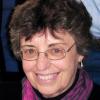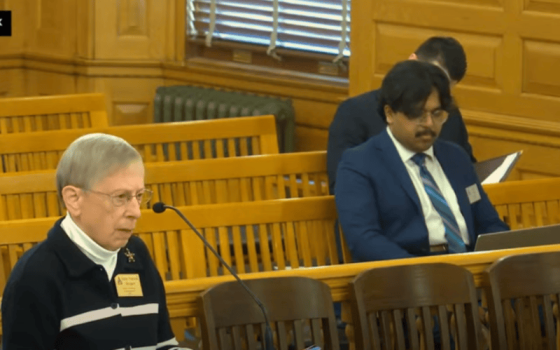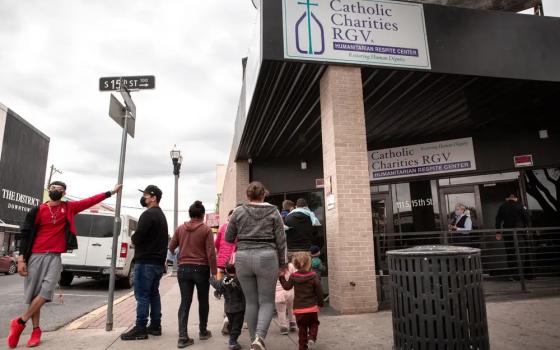SAN FRANCISCO -- Hundreds of immigrants and their supporters joined Archbishop George Niederauer at St. Mary's Cathedral on Jan. 28 to demonstrate their opposition to Secure Communities, a federal program that has resulted in the deportation of more than 60,000 undocumented residents of California in the last two years.
Seven in every 10 of those 60,000 were not convicted or were arrested for a minor offense, such as selling food without a permit, according to the website of Assemblyman Tom Ammiano, a Catholic introducing legislation that will allow cities and counties in California to opt out of the program. Niederauer has endorsed the proposal.
Currently, participating police and sheriff departments send the fingerprints of all arrestees to the U.S. Immigration and Customs Enforcement agency for verification of immigration status, usually while the person is still in pretrial custody. Those found to be undocumented are held for up to two days in local jails until ICE picks them up for detention and potential deportation.
"We cannot stand idle while our families are being torn apart by unjust immigration policies," the archbishop told the crowd, which included more than 50 clergy and women religious. "It is important that we keep working together to end S-Comm" and to ensure a "humane immigration system."
Secure Communities was introduced by President George W. Bush's administration in 2008 and was expanded dramatically under President Barack Obama. Almost 1,600 jurisdictions in 44 states participate in the program, and ICE, an agency of the Department of Homeland Security, says it plans to have the program active in all jurisdictions by 2013.
But, opponents say, Secure Communities does not ensure security because it does not target perpetrators of serious crimes. Rather, it increases fear among immigrants and keeps them from reporting crimes or helping law enforcement with criminal investigations.
Fatima, a mother of three who has lived in the United States for 11 years without immigration papers, said she has been very anxious since her husband was arrested and deported under Secure Communities.
"I fear that someone will take me away, too," said Fatima, who did not give her last name for fear of deportation. "What will happen to my children?"
According to a comprehensive study on Secure Communities by the Chief Justice Earl Warren Institute on Law and Social Policy at UC Berkeley School of Law, 39 percent of those arrested through Secure Communities have a spouse or child who is a U.S. citizen. About 88,000 families with members who are U.S. citizens have been impacted by the program.
The study also found:
- Latinos make up 93 percent of those arrested through Secure Communities, though they are only 77 percent of the undocumented U.S. population;
- Only 52 percent of individuals arrested through Secure Communities are slated to have a hearing before an immigration judge;
- Two percent of noncitizens arrested through Secure Communities are granted relief from deportation by an immigration judge, compared to 14 percent of all immigration court respondents who are granted relief;
- Approximately 3,600 U.S. citizens have been arrested by ICE through the Secure Communities program.
Although Secure Communities is a nationwide program, the highest number of deportations has come from California. This reality is fueling actions in numerous community groups who are also getting behind Ammiano's bill.
"Our people are angry," said Fr. Moises Agudo, Vicar for Spanish Speaking at the San Francisco Archdiocese, where 41 percent of members are Latino. "They pay taxes, they cook and clean for American families, and they are invisible."
"Until we have national reform, we will take action here in California," said Sergio Gomez of St. Paul of the Shipwreck Catholic Church in San Francisco. "We will be a prophetic voice for change."
Ammiano sounded a similar refrain in addressing the crowd assembled at the cathedral.
"We are at the crossroads of immigration reform," he said. "It is a matter of social justice. Together we can do this. Si, se puede."




